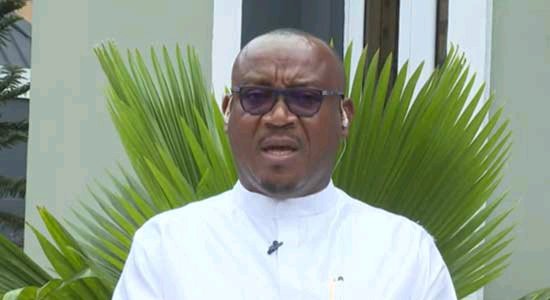In a frank interview on TVC TV from 12:44, Samuel Nwanosike, chairman of Ikwerre Local Government Area in Rivers State, offered his perspective on recent political developments, distancing them from typical electoral activities.
Nwanosike asserted, “We don’t consider what they are doing an electoral process.” This statement suggests a shift in how these events are being interpreted, moving away from viewing them through the lens of election strategy.
Instead, the chairman framed the situation differently, stating, “We see it as an opportunity for them to come to stage, and join the back wagon of those who are abusing Mr President.” This characterization paints a picture of opportunistic criticism rather than constructive political discourse.
Nwanosike referenced a specific incident to illustrate his point: “In one of the clips here, a man called Mr President all manner of names.” This allegation of personal attacks against President Bola Ahmed Tinubu underscores the chairman’s concern about the tone of current political dialogue.
The interview also touched on claims regarding the influence of Rivers State Governor Nyesom Wike in the 2023 election. Nwanosike recounted, “He said that they were decided by Wike to vote for a man who does not mean well for Nigeria, that they will never be deceived.” This statement hints at complex political dynamics within Rivers State and raises questions about voter autonomy and political allegiances.
Nwanosike’s comments shed light on the intricate web of relationships and influences in Nigerian politics, particularly in Rivers State. The chairman’s frank discussion provides insight into how local political leaders perceive and interpret national political trends and discourse.
As Nigeria continues to navigate its political landscape, Nwanosike’s interview serves as a reminder of the often contentious nature of political debate in the country. It raises important questions about the line between legitimate criticism and personal attacks in political discourse, as well as the role of regional political figures in shaping national electoral outcomes.

